The Willamette University Board of Trustees promoted eight College of Arts and Sciences faculty members from assistant professor to associate professor with tenure during the board’s February meeting.
In a letter to the campus community, Willamette University President Steve Thorsett said that this is the largest group of tenure candidates in recent memory.
“The Board’s decision to grant tenure demonstrates their confidence in the quality of our faculty and in the strength of our institution,” Thorsett said. “I am confident that these eight faculty, all rising academic leaders, will serve Willamette and its students well in the years and decades ahead.”
The board selected these faculty members for teaching excellence, scholarly or creative accomplishment, and service to the university and community.
Tenured and promoted to associate professor
Héctor Agüero, Music
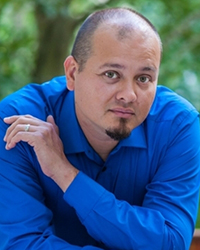
Héctor Agüero earned degrees in conducting and music education from the Texas Tech University School of Music in Lubbock where he was a Ronald E. McNair Scholar and the University of Houston’s Moores School of Music where he received the Schissler Conducting Fellowship. A strong advocate of new music, Agüero has collaborated with and premiered works by American composers such as Monte Keene Pishny-Floyd and Robert S. Nelson. Agüero’s scholarly interests include music education and orchestral performance practice. He conducts the University Chamber Orchestra and Wind Ensemble.
Lucas Ettinger, Exercise and Health Sciences
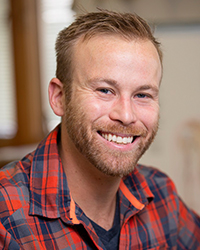
Lucas Ettinger has a PhD and MS in orthopedic biomechanics from the University of Oregon. He has published numerous peer-reviewed original articles in both clinically relevant and high impact scientific journals. Several of Ettinger’s students received co-authorship on these publications. Ettinger’s laboratory has ongoing clinical research in the area of neuromuscular disorders. He has investigated the influence of various pain disorders on muscle and joint coordination and sensory integration.
David Griffith, Chemistry
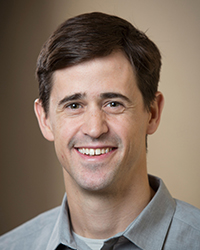
David Griffith’s lab focuses on understanding the chemical processes that control the fate of estrogen hormones in aquatic environments using a variety of analytical techniques, including high performance liquid chromatography, UV-visible spectroscopy, degradation kinetics experiments, tandem mass spectrometry, and high-resolution mass spectrometry. The results of this work will be used to predict environmental concentrations of estrogens, anticipate problem areas, and mitigate the associated risk to aquatic organisms and human health. Griffith holds a PhD from Massachusetts Institute of Technology and Woods Hole Oceanographic Institution, an MESc from Yale School of Forestry & Environmental Studies, and a BA from Bowdoin College.
Tabitha Knight, Economics
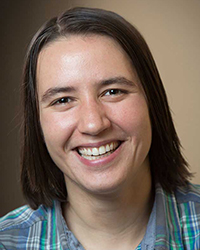
Tabitha Knight earned her BS in Business Administration with a concentration in finance at California State University, Sacramento, and her master’s and doctorate in economics at Colorado State University. A feminist macroeconomist with training in heterodox economic theories, Knight has expertise in the intersection of economic development, international trade and finance, and the economics of race and gender. Specifically, her research focuses on gendered labor markets both domestically and abroad.
Janet Lorenzen, Sociology
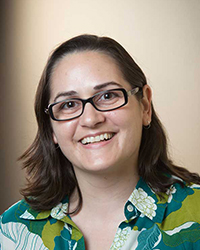
Janet A. Lorenzen earned a PhD in Sociology from Rutgers University and an MA in Women’s Studies from San Diego State University. Her research interests, broadly defined, include studying the way people respond to social and environmental problems. She is interested in the micro- and meso-level foundations of macro-level social change, including lifestyle change, social movement strategies, and policymaking. Her current research project is on local climate governance.
Katja Meyer, Environmental Science
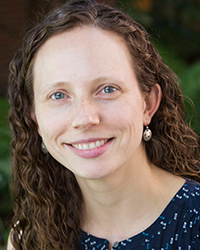
Katja Meyer holds a PhD in Geosciences and Biogeochemistry from the Pennsylvania State University and a BA in Geology from Carleton College. A broadly trained geologist with interest in the interactions between life, the geochemical environment, and climate, Meyer is focused on understanding the Earth system feedbacks that are important to ocean deoxygenation. Much of Meyer’s work centers on understanding the development of anoxic and sulfidic conditions during the end-Permian mass extinction and recovery.
Maegan Parker Brooks, Civic Communications and Media
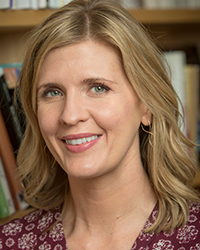
Maegan Parker Brooks holds a PhD in Communication Arts with emphases in rhetoric and Afro-American studies from the University of Wisconsin-Madison. Her research and teaching interests are inspired by fundamental questions concerning how people in America talk about race: Whose voices are silenced? How? Which perspectives are privileged? Why and to what effect? And how do conversations about race engage with the legacy of racism? Brooks explores answers to these questions with students in the courses “Rhetorical Theory“ and “African American Public Discourse.“
Kyle Stephenson, Psychology
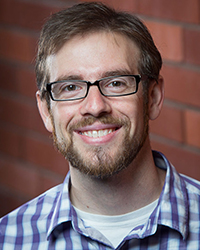
Kyle Stephenson earned his BS in Psychology from Santa Clara University and his master’s and doctorate in clinical psychology from the University of Texas, Austin. His teaching interests include clinical psychology, psychology of intimate relationships, statistics, and research methods. He conducts research in a number of related areas including the association between sexual experiences and overall quality of life, the definition and measurement of sexual well-being, and the evaluation of treatments for sexual dysfunction, relational distress, and anxiety. He directs the Sexuality and Relationships Lab at Willamette.

